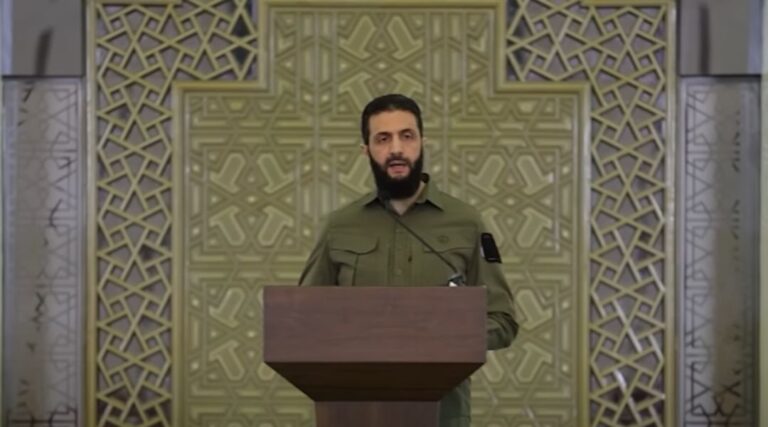For those fearing the rapid Islamization of Syria, this first Ramadan since the collapse of the dictatorship in December 2024 was a significant test. However, fasting rules remained flexible. Many cafes in Damascus remained open during the day, but alcohol was still available, even outside of Christian districts and tourist destinations. “Paradoxically, the administration has little use of Islam in its strategy for legitimacy,” said Thomas Pierret, a researcher at CNRS-Iremam at the French Institute specializing in the Arab and Muslim worlds.
Syrian new leadership rarely needs to emphasize its Islamist nature. The HTS is the group that formed the government that it emerged and formed on March 29th, and does not hide its ideological roots or aspirations. But Syrian authorities also have to reassure the international community. The international community is concerned about the fate of the minority, which accounts for about 30% of the population. These fears were heightened in early March after the massacres killed hundreds of civilians in the Alawite area.
Religious freedom in the new constitution
The constitutional declaration issued on March 13 is a gesture to the West, except that it will serve as a framework until a legislative election takes place within five years. It guarantees freedom of belief among followers of three monotheistic religions and protects the cultural and linguistic rights of all Syrians. It also asserts equal rights to all citizens, regardless of race, religion, gender, or origin.
Many experts predicted that Islam would be declared the religion of the nation. Even under the Baathist regime, religious law, like many Middle Eastern countries, ruled issues of personal status, such as family, inheritance, and marriage. “However, once a permanent constitutional debate takes place, the role of Islam in shaping the Syrian state will be more intensely defended,” Pieret noted.
For now, the Constitutional Committee is circumventing this issue. However, while the president is a Muslim and argued that Islamic Jurisprudence (FIQH) must be enhanced as the “primary source” of law, it was previously one source.
Ahmed Arshara’s careful approach
This decision is in line with interim president Ahmed Arshara‘s strategy to avoid drastic institutional changes before establishing a government. Even the appointment of Osama Al-Rifhi to the new Grand Mufti was treated with caution. Al-Rifai, a longtime opponent of both the former dictatorship and the HTS, has been leading the Islamic Council in Istanbul since 2014 in exile. “The symbolic influence of his appointment was hidden by the announcement of government formation the following day,” Pieret observed.
Still, changes are being made. In Aleppo, for example, Ibrahim Shasho, the dean of the new Grand Mufti and Sharia, is a stubborn Salafist and a strong HTS supporter. “That seems natural to me. They shed their blood for victory,” said Mohammed Abu Zeid, a Lebanese clergyman, author of Islamic discourse between the culture of war and the establishment of a culture of peace (2015).
Balancing the various trends of Islam
Arshala and his inner circle piloted carefully, avoiding open conflict with Syria’s long-established religious system. “Instead, they are trying to piece together Salafisists, especially those that are more tolerant, who do not compromise traditional Islam representatives,” says Olwa Akhok, an expert in the Sunni jihadist movement.
The new Fatwa Council, established on March 28th, was established to oversee religious jurisprudence and reflects this practical approach. It includes Salafistic clergy like Abd al-Rahim Athon, close confidant to Al-Sharaa, as well as figures along the Muslim Brotherhood, such as Anas al-Musa, and moderates like Muhammad Rhet Al-Nabrusi, a historic opponent of the HTS.




